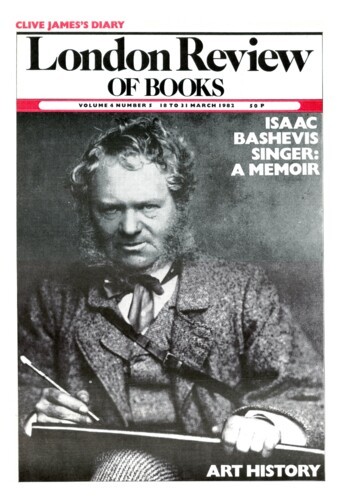Writing a book about it
Christopher Reid, 17 October 1985
The most successful pieces in Norman MacCaig’s Collected Poems tend to be lists of one kind or another. He is best, too, when he has found something to celebrate. A poem such as ‘Praise of a Collie’, which enumerates the virtues of an admired sheep-dog, now dead, works well enough as a primitive catalogue. The fourth of its five three-line stanzas gives something of its flavour:





